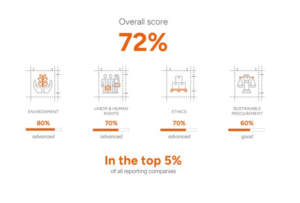What do workers really want?
People are generally influenced and defined by their environments and conditions they were exposed too whilst growing up.
These influences affect values and expectations of workers and help to define what employees expect from their employers.
In August this year, Linda Duxbury, a professor at the Sprott School of Business, Carleton University, in Ottawa, delivered a keynote presentation at the International Society of Certified Employee Benefit Specialists’ 2015 Employee Benefits.
The presentation discussed why employers must understand key generational differences, in order to attract and keep top talent—and to realise why the traditional rewards of benefits and compensation are no longer enough to engage workers.
We have reached an unusual position within the workplace where organisations can have up to 4 different generations within its workforce. Each generation has a different approach and style that they work in.
- Workplace Veterans (born just before or during the Great Depression to 1946)
- Baby Boomers (born from 1947 to 1964).
- “Baby Bust”/Generation X (born from 1965 to 1980).
- “Echo Boomers”/Generation Y (born from 1981 to 1990).
Differences in generations
For Generation Y, money isn’t a key driver, instead this generation craves flexibility, holiday days and development plans.
Generation X’ers are more likely to have more financial expenses such as mortgages and family costs. As a result job security is important to them as they can’t afford to be unemployed. This said, they do value career advancement and perks of the job. This should be noted as they’re likely to move on if an opportunity arises.
However a work/life balance is very important to an X’er, compared to a Boomer, they are less likely to sacrifice family life for higher pay,- especially if the position requires excessive hours and a unreasonable workload.
Out of all of the generations, the Boomers are the most focused on benefits, retirement plans, pensions and health care. Their general attitude to work is to be left alone to complete their job. Many of the Boomers would retire early but are unable to due to personal financial situations.
More than Money
Many Boomers have sacrificed family life for job security and advance, and now expect the younger generations to do the same. This is compared to the younger generations, who place a higher priority on a work-life balance.
Boomers do have their limits. They expect respect and if they feel that they are being micromanaged or denied the salary (that their experience can request) they will eventually leave. When this occurs it suddenly dawns on the employer that no one else is able to complete (or has the knowledge to) complete that job function.
An organisations competitive advantage is centered on retaining talent. This requires a relationship with employee’s and understanding how the generations differ. By understanding which ways employee’s value flexibility and rewards is essential in earning and maintaining trust.
Related stories
Sustainability remains a top business priority for Crown in the UK & Ireland and globally; we are therefore delighted to have launched our 2023 UKI Sustainability Report!
Crown are delighted to announce that we have been awarded Gold by EcoVadis in 2024 for the second time, reflecting our commitment to and progress in becoming a responsible business.
We supported both Landaid and the YMCA with cardboard boxes for their annual sleepout events. We were incredibly pleased to deliver 1,100 boxes as well as bring along a group of volunteers to the YMCA event.




















